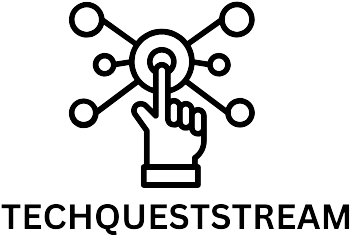In a world where cyber threats lurk around every digital corner, the demand for cyber security professionals is skyrocketing. If you’ve ever dreamed of being the superhero of the online realm—without the spandex—now’s your chance. Cyber security online jobs are not just about thwarting hackers; they offer a thrilling blend of problem-solving, strategy, and a dash of adrenaline.
Table of Contents
ToggleOverview of Cyber Security Online Jobs
Cyber security online jobs present a vital opportunity as organizations prioritize safeguarding their digital assets. Professionals in this field engage in various roles, enhancing security measures and countering emerging threats.
Definition and Importance
Cyber security refers to the practices and technologies aimed at protecting systems, networks, and data from unauthorized access and attacks. Its importance lies in safeguarding sensitive information, maintaining privacy, and ensuring operational continuity for businesses. The rise of cyber threats highlights the need for skilled professionals capable of mitigating risks and responding to incidents. By investing in cyber security, organizations not only protect their assets but also enhance their reputation and trust with customers.
Types of Cyber Security Online Jobs
Diverse roles exist within the cyber security landscape, catering to various skills and expertise. Information security analysts monitor and protect systems from intrusions. Penetration testers identify vulnerabilities by simulating attacks. Security architects design and implement robust security systems to withstand threats. Compliance analysts ensure adherence to laws and regulations governing data protection. Each role contributes uniquely to the overall security posture of an organization, emphasizing the collaborative nature of cyber security efforts. Job seekers can find positions ranging from entry-level to advanced expertise, accommodating differing levels of experience.
Skills Required for Cyber Security Roles
Cyber security roles demand a blend of technical and soft skills to address various security challenges effectively. Professionals in this field must develop a well-rounded skill set to protect organizations from evolving threats.
Technical Skills
Knowledge of networking is essential for understanding data flows and potential vulnerabilities. Proficiency in programming languages such as Python, Java, or C++ helps in automating tasks and developing security tools. Familiarity with operating systems, especially Linux and Windows, enables effective security management. Expertise in risk assessment techniques allows professionals to identify and mitigate security threats. Additionally, understanding encryption methods and security protocols enhances data protection strategies.
Soft Skills
Strong analytical skills are crucial for dissecting complex security incidents and determining root causes. Effective communication ability fosters collaboration with teams and stakeholders. Problem-solving skills enable quick decision-making in high-pressure situations. Adaptability becomes important as cyber threats evolve rapidly, requiring constant learning and adjustment of strategies. Furthermore, ethical judgment guides professionals in making decisions with long-term implications for security and privacy.
Job Search Strategies
Effective job search strategies can significantly improve the chances of landing a cyber security position. Utilizing various platforms and networks can provide valuable opportunities in this growing field.
Online Job Portals
Numerous online job portals specialize in cyber security positions. Websites such as CyberSecJobs.com, InfoSec Jobs, and Dice cater specifically to this sector. Many employers post listings on general job sites like Indeed, Glassdoor, and LinkedIn, making them useful for job seekers. Job seekers can filter searches by experience level, job type, and location. Be proactive and tailor resumes to highlight relevant skills and experience.
Networking and Professional Communities
Networking plays a crucial role in finding cyber security jobs. Joining professional organizations like (ISC)², ISACA, or local cyber security groups connects professionals with industry experts. Engaging in discussions on platforms like LinkedIn or attending virtual meetups can expand one’s network. Participating in online forums or contributing to platforms like GitHub showcases technical abilities. Building relationships within the industry can lead to referrals or insider information about job openings.
Potential Employers
Various employers actively seek cyber security professionals to safeguard their systems. These opportunities arise in both government agencies and private sector companies.
Government Agencies
Government agencies often recruit cyber security experts to protect sensitive data. Positions can be found within entities like the Department of Homeland Security, the National Security Agency, and state-level IT divisions. Employment at these organizations typically involves addressing national security threats and maintaining infrastructure integrity. Candidates with security clearances enhance their appeal for these roles. Job functions may include monitoring cyber threats, analyzing data breaches, and developing response strategies to mitigate risks.
Private Sector Companies
Private sector companies also offer a wealth of opportunities in cyber security. Tech giants like Google, Microsoft, and Amazon prioritize securing their digital environments. Roles within finance, healthcare, and retail sectors increasingly focus on safeguarding customer data and ensuring compliance with regulations. These companies value skills in threat analysis, incident response, and system vulnerability assessments. Professionals often find themselves working alongside cross-functional teams to develop robust security measures tailored to organizational needs.
Challenges in the Cyber Security Job Market
The cyber security job market presents several challenges that aspiring professionals encounter.
Skills Gap
A significant skills gap exists in the cyber security workforce. Companies frequently seek candidates with specialized knowledge but find few who meet all criteria. Entry-level roles demand proficiency in complex technical areas, which can deter potential applicants. Employers often prioritize certifications like CISSP or CEH, creating competitive pressure for job seekers. Educating new cybersecurity professionals on emerging technologies can help address this gap. Training programs and boot camps can bridge theoretical knowledge with practical applications. With industry needs evolving, continuous learning becomes vital for career advancement.
Competition
Intense competition characterizes the cyber security job landscape. Many skilled professionals vie for limited positions, elevating the stakes for securing employment. Networking plays a crucial role in standing out among applicants. Participating in career fairs and joining professional organizations can enhance visibility. Organizations often favor candidates with hands-on experience, making internships and practical projects essential. The high demand for cyber security experts attracts entries from various sectors, further increasing competition. Thus, refining one’s personal brand through online presence and skill showcases becomes necessary to navigate this crowded field.
The landscape of cyber security online jobs is rapidly evolving and offers a wealth of opportunities for those looking to enter this dynamic field. With the increasing emphasis on safeguarding digital assets organizations are prioritizing skilled professionals who can navigate complex security challenges.
As the demand for cyber security experts continues to rise job seekers must stay proactive and adaptable. By honing both technical and soft skills and leveraging networking opportunities candidates can enhance their prospects in this competitive market.
Ultimately the journey into cyber security is not just about landing a job; it’s about contributing to a safer digital environment for everyone.




